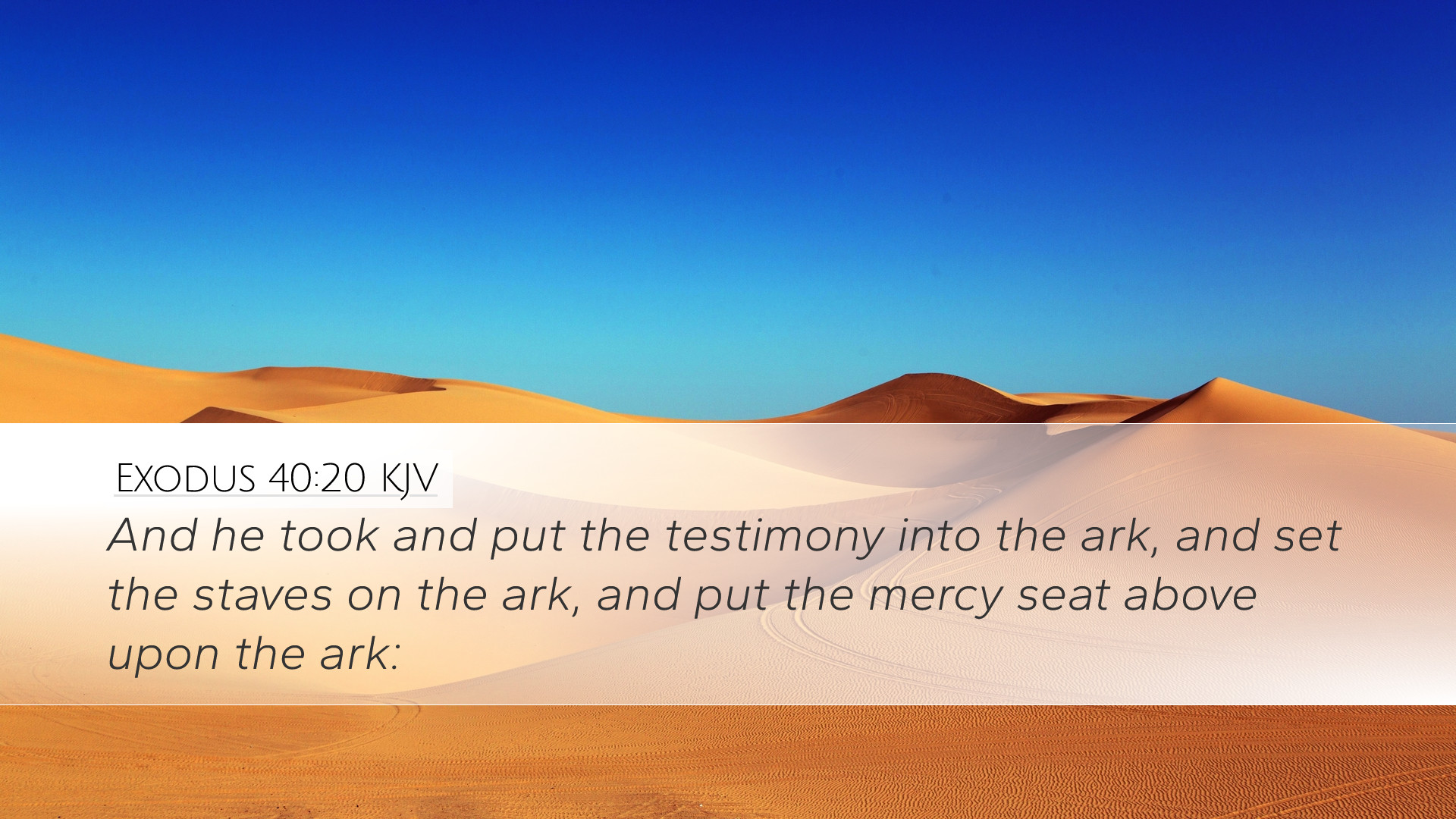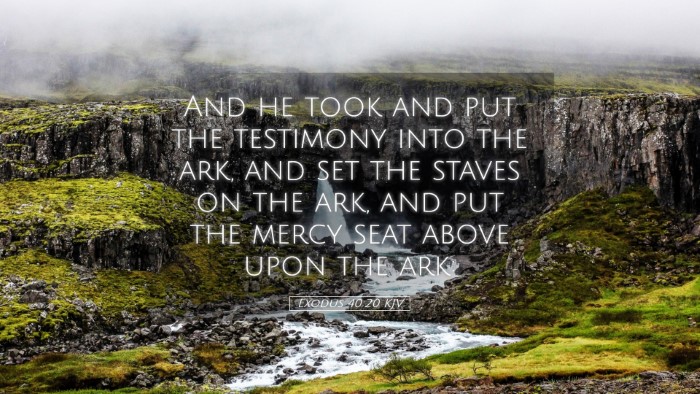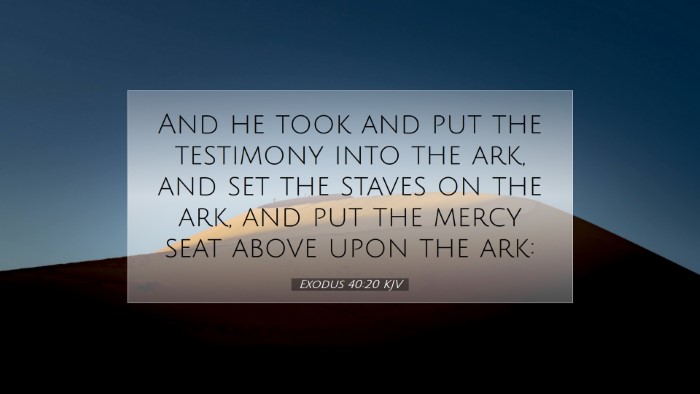Exodus 40:20 Commentary
Verse: "And he took and put the testimony into the ark, and set the staves on the ark, and put the mercy seat above upon the ark." (Exodus 40:20)
Introduction
In Exodus 40:20, we reach a pivotal moment in the narrative of the Exodus, where the commands given by God to Moses concerning the tabernacle and the Ark of the Covenant are fulfilled. This act symbolizes God's presence with His people and sets the stage for worship, covenant renewal, and the unfolding of Israel's national identity in relation to their Creator.
Theological Significance of the Ark
The Ark of the Covenant represents the very heart of Israel's worship. Within it, the tablets of the Law were placed, signifying the covenant relationship between God and Israel (Matthew Henry). The Ark serves not only as a container for the law but also as a throne for God on earth (Adam Clarke). Its placement in the Most Holy Place underlines the sanctity and importance of the Law in the life of the community.
Details of the Command
-
“He took and put the testimony into the ark”:
This action emphasizes the integration of the Law within the very structure of the Ark. The testimony, referring to the tablets of stone (Exodus 31:18), reflects not only the moral standards God has established but also His governance over Israel (Albert Barnes). The inclusion of the Law signifies that the community is under divine authority.
-
“Set the staves on the ark”:
The staves (or poles) are a crucial element for carrying the Ark, demonstrating that it is meant to be mobile and not confined to one place (Henry). This mobility anticipates the journey of Israel through the wilderness, underscoring that God’s presence goes with them. It also serves as a reminder that worship must be active and ongoing.
-
“Put the mercy seat above upon the ark”:
The mercy seat, or the lid of the Ark, symbolizes God's mercy and grace. It is from here that God would reveal Himself and speak to Moses (Exodus 25:22). This arrangement indicates that at the very heart of the covenant relationship is God's mercy, which balances out His justice (Clarke). Furthermore, the mercy seat foreshadows Christ as the ultimate propitiation for sin.
Historical Context
The context of Exodus involves the Israelites’ liberation from bondage in Egypt and their journey toward the Promised Land. The establishment of the Ark and the tabernacle is a crucial step in this journey as it marks a transition from slavery to a nation set apart for God's work (Barnes). The Ark's creation signifies a formalized relationship between the Divine and Israel, charting a course for future generations.
Applications for the Believer
Exodus 40:20 calls us to reflect on several vital aspects of our faith today:
-
Understanding God's Presence:
Just as the Ark symbolized God's presence among the Israelites, believers today should recognize that God is with us through the Holy Spirit. The indwelling of the Holy Spirit is akin to the ark residing in the Holy of Holies.
-
The Importance of God's Word:
The testimony (the Law) being placed within the Ark underscores the necessity of valuing and upholding Scripture in our lives. Believers are called to hide the Word of God in their hearts (Psalm 119:11).
-
Living in Community:
The communal aspect of carrying the Ark reminds us of the importance of fellowship in the Christian life. The corporate worship of believers is essential to the expression of faith and underscores the shared journey of God's people.
-
Assurance of Mercy:
The mercy seat serves as a powerful reminder of God's forgiveness and compassion. This invites believers to approach God with confidence, knowing they can find grace in time of need (Hebrews 4:16).
Conclusion
Exodus 40:20 is not just a historical account of the Israelites' worship but is laden with rich theological significance and practical applications for believers today. Understanding the layers of meaning behind the actions described can deepen one’s faith and reaffirm our understanding of God’s enduring covenant with humanity. The Ark stands as a testament to God's desire to be close to His people, to live among them, and to be their guiding force amid life’s wilderness.


